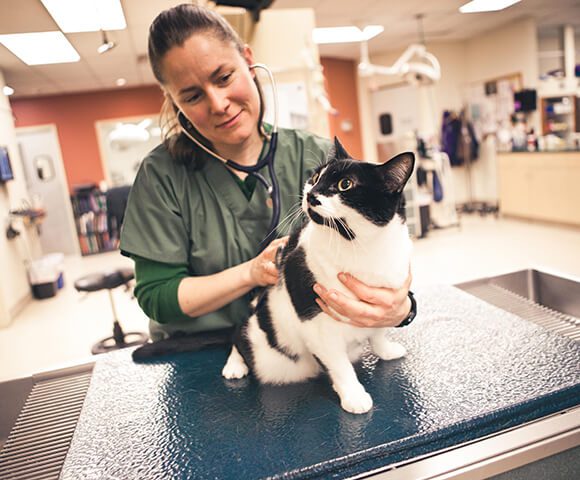This article was provided to BluePearl by Royal Canin, a BluePearl Partner in Education.
Choosing The Best Diet For a Dog With Multiple Problems
Often, the presence of multiple problems complicates diet selection because there isn’t a diet that fits the nutritional profile needed for management of both diseases. For example, how do we choose the best diet for a dog that has both chronic pancreatitis and inflammatory bowel disease or even food allergies? Where do you turn if that same patient no longer finds his low-fat diet palatable? The good news is there are options for the veterinarian and the patient!
Look at metabolizable energy
Regardless of whether acute or chronic pancreatitis is present, most literature recommends a low-fat diet. However, how low is a “low-fat” diet? This can be confusing for veterinary professionals, because the most common way to express the amount of fat in commercial pet food is in “as fed” basis or “percentage of dry matter.”
Ideally, percentage of ME is a more accurate way to compare different foods since it allows comparisons despite differing amounts of moisture, fiber and ash. It is important to note that not all therapeutic diets marketed for the management of gastrointestinal disorders are the same, and they vary greatly in fat content. And of course, it is all relative to the patient’s original diet.
For acute pancreatitis, a metabolizable energy (ME) of 20% or less is recommended. However, for more chronic pancreatitis a diet that is consistent and moderately low in fat is key. See below for some Royal Canin options for your patients.
Recommend a Gastrointestinal Low Fat Home Care Kit
Consider this diet for:
- Acute AND chronic diarrhea and/or vomiting
- Hyperlipidemia
- Lymphangiectasia
- Bacterial overgrowth, antibiotic responsive diarrhea (ARD)
- Exocrine pancreatic insufficiency (EPI)
- Bile acid deficiency
Pancreatitis and Comorbidity Options:
1. Royal Canin Gastrointestinal Low Fat
- % ME Fat Dry: 17
- % ME Fat Can: 16
2. Royal Canin Vegetarian
- % ME Fat Dry: 25
3. Royal Canin PW Moderate Calorie
- % ME Fat Dry: 25
Royal Canin is a BluePearl Partner in Education.


